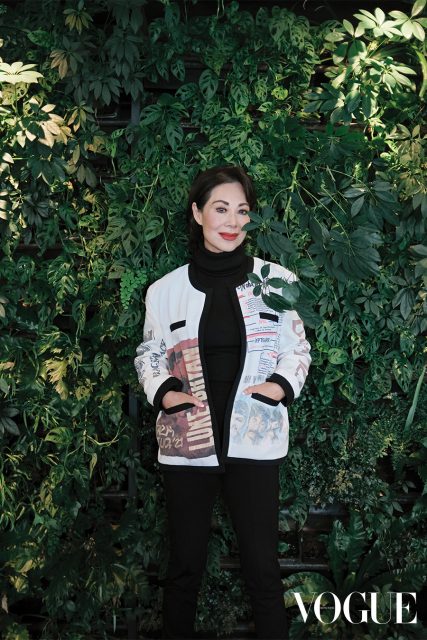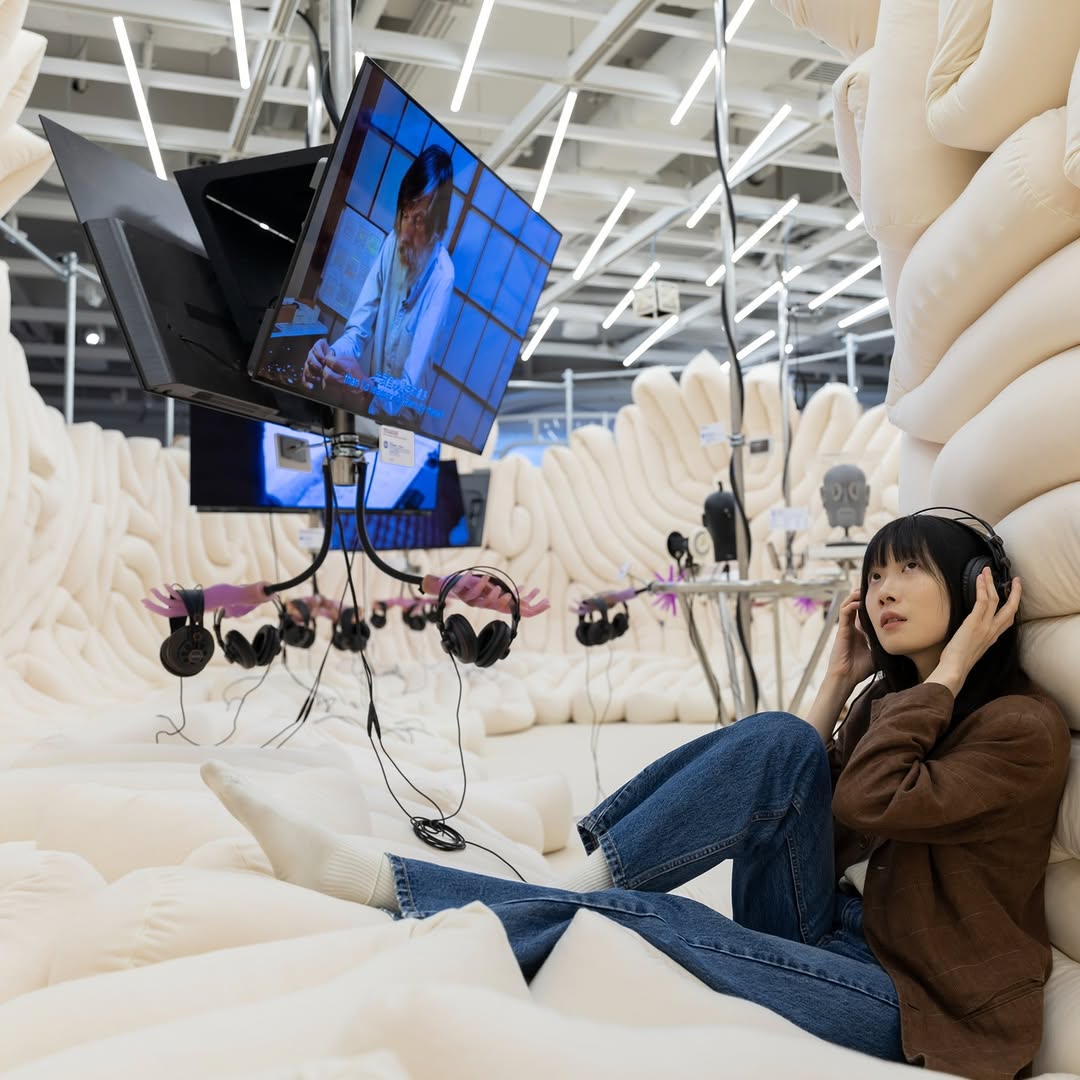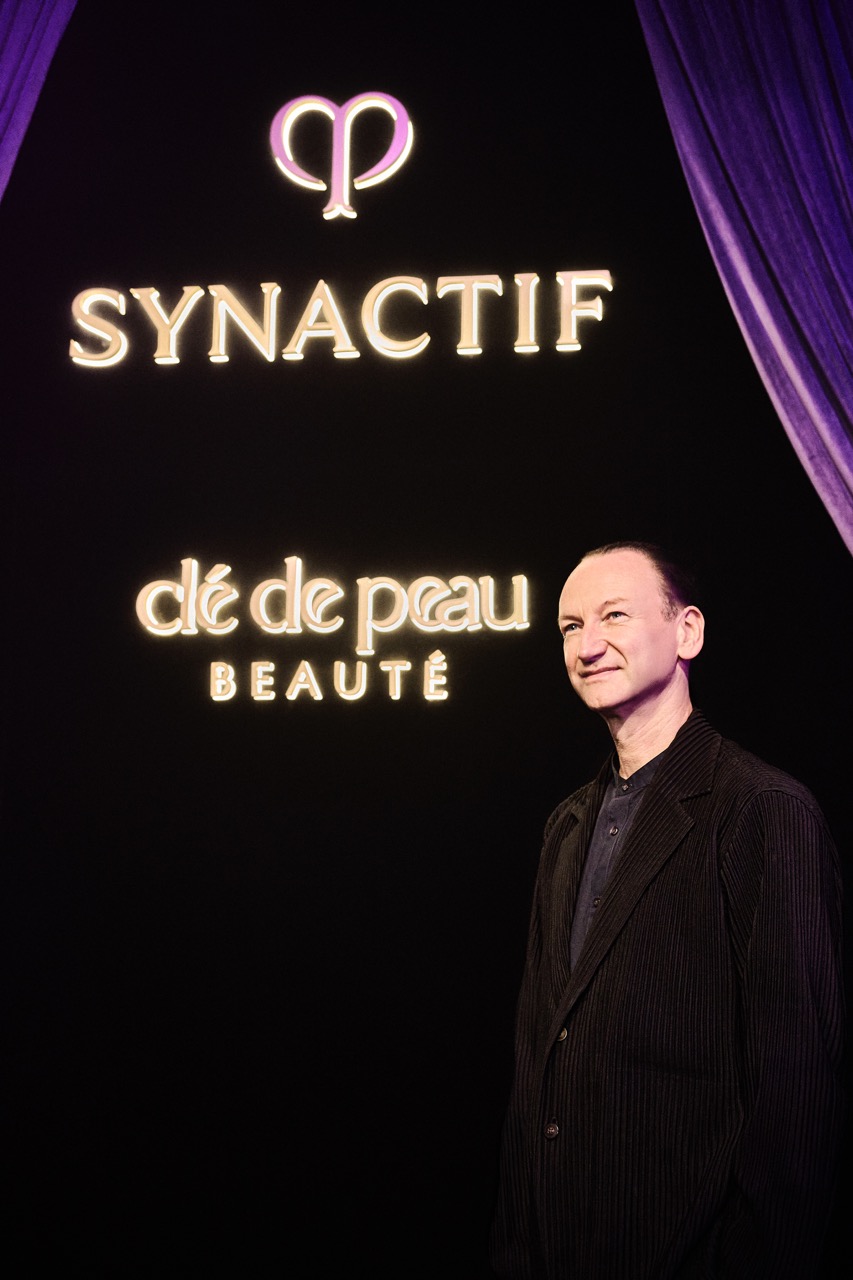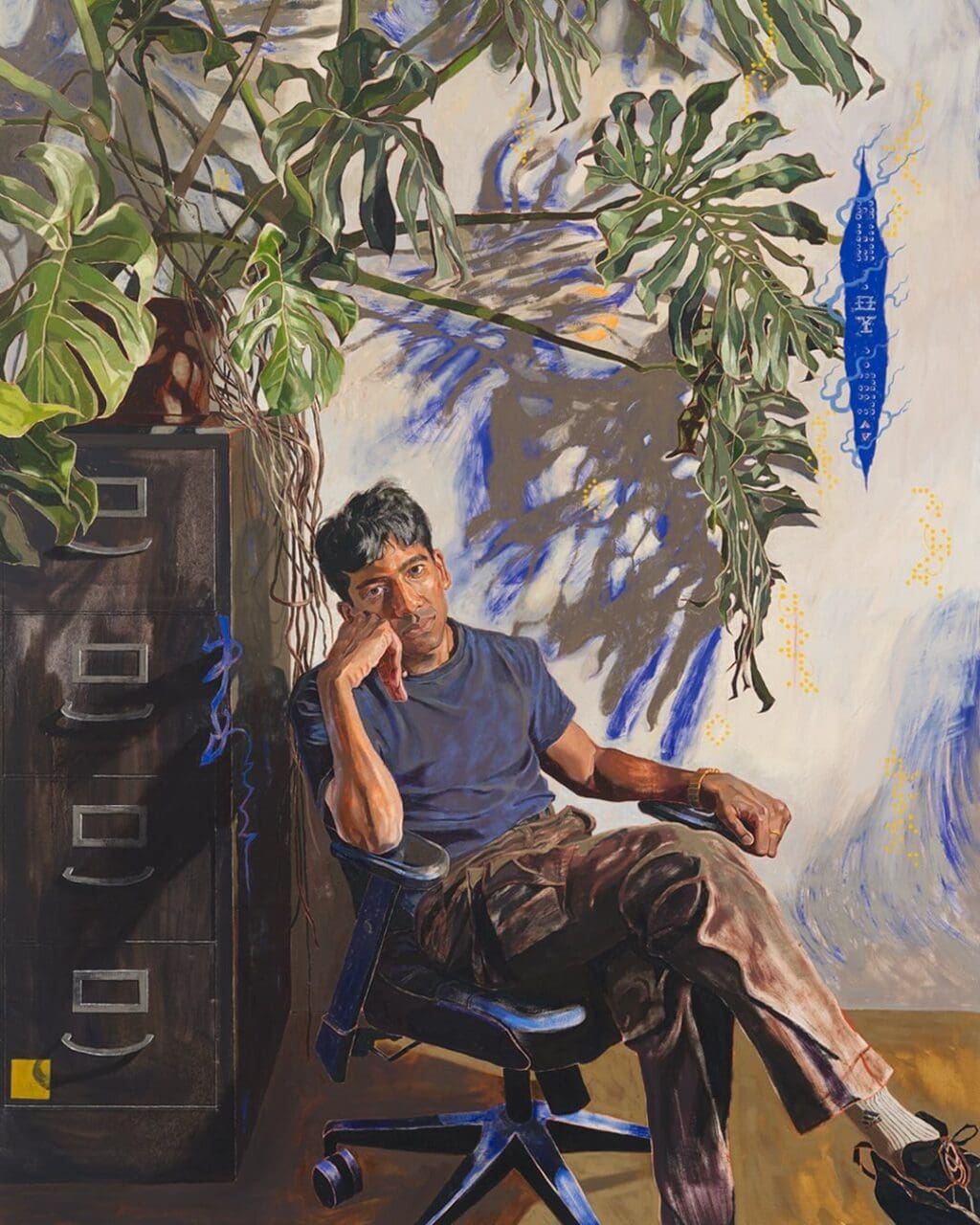For many in Hong Kong, the late ’90s represented the golden age of Lan Kwai Fong, the undisputed epicentre of the city’s nightlife scene. But as the 20th century drew close, a new generation of venues emerged around the neighbourhood. None have stood the test of time like dragon-i, operating on Wyndham Street for over two decades. Under the visionary leadership of Gilbert Yeung, dragon-i has cemented its place as a pioneering force in Hong Kong’s entertainment industry in the 21st century.
The ability to evolve with the times while staying true to its roots is what has guaranteed dragon-i’s longevity, and the recent revamp of its Private Room is a testament to this fact. The space is adorned with Yeung’s personal art collections as an art collector, such as antique crystal chandeliers, pinball machines and contemporary paintings, showcasing his discerning eye for eclectic design. It is here where we sat down with Yeung as shared one of his favourite memories from his dragon-I journey over the past two decades.
“There was one summer when Real Madrid came to Hong Kong for an exhibition match. I remember I was at the gym that day when my colleague called to say the team would be stopping by that night to hang out at the bar. It was around the time Beckham had just transferred from Manchester United to Real Madrid. The entire team, including Beckham, Ronaldo and Carlos, showed up that night. It also happened to be a weekday, so there weren’t many customers in the bar. They all seemed very relaxed and happy, and I think they were even late for training the next day. I wanted dragon-i to be more than just a nightclub, but a cultural hub where we could introduce customers to our favourite movies, music and pop culture trends. So over the years we’ve continually brought in up-and-coming creative talents and influencers from abroad to visit.”
The Hong Kong spirit is about having a can-do attitude — being highly efficient but also pragmatic and down to earth.
Gilbert Yeung
Having witnessed Hong Kong’s development since the turn of the 21st century, Yeung also looked back on how the city’s nightlife has evolved over the past 20 years. “In 2002, when we first opened, Hong Kong’s nightlife scene was in decline and still developing — there were no clubs like ours with such a strong design aesthetic and unique musical offerings. As an international hub, Hong Kong was definitely in need of venues like ours. Back in the day, Wyndham Street was filled with carpet and antique shops. Luckily after we opened, Hong Kong’s economy started picking up again. Expats began taking notice of us, as did local patrons who understood what we were doing. Students who returned after studying abroad also liked hanging out with us. Then in 2007, we were also the first to introduce bottle service, which had just started trending in Las Vegas. In recent years we’ve seen nightlife spread from Central to the rest of the city: from areas like Soho, Sai Ying Pun, Kennedy Town in the West, and Moon Street, Star Street and Lee Tung Street in the East, as well as Happy Valley and Tai Hang. In the past, people would go straight to clubs after dinner, whereas now, dinner times are longer because many restaurants offer interesting dining experiences where people can have fun.”
It goes without saying that changes in lifestyle trends are inevitable. So where does Yeung see himself in 10 years? “Personally, I now have two young children and I have aged, so I want to take things easy in the future and work on projects that allow me to unleash my creativity. On the other hand, my gut tells me that Macau has a lot of potential for growth. For one, the transportation there has become more convenient. They are also proactively developing their hospitality and tourism industries with the government’s support. Everyone wants to turn Macau into Asia’s entertainment hub and transform it into a second Las Vegas. So if the right partner comes along, I would definitely be interested in pursuing opportunities there.” At the time of the interview, Black Spade Capital Limited had just announced that they would form a joint venture with Yeung to operate a series of luxury leisure and entertainment venues, with their first project slated to launch in Macau.
Macau aside, how does Gilbert feel about Hong Kong? What importance does the city hold for him? “Hong Kong is my home. I was born and raised here. Even though I went abroad for high school at 13, I’m a local boy through and through, down to my bones. I really love Hong Kong wonton noodles and fishball noodles. Whenever I leave Hong Kong for over two weeks, I miss the city and look forward to my return. Hong Kong holds a special place in my heart. I grew up in Kowloon and now live on Hong Kong Island. When I was younger, my grandfather lived in the New Territories, and I really enjoyed riding my bike around the area after school. Actually, my wife once asked if I’d consider immigrating. After pondering over the thought, I told her I loved Hong Kong too much leave. Plus, I come from a big family and so many of us live in Hong Kong. We are a tight-knit family and we get together every week.”
Yeung’s love for his home city is evident as he continues to share what the Hong Kong spirit means to him. “The Hong Kong spirit is about having a can-do attitude — being highly efficient but also pragmatic and down to earth. If you look at everything Hong Kong has gone through over the past few decades, from natural catastrophes to social upheavals, people all found a way to turn things around every time they felt discouraged and wanted to give up and quickly picked themselves back up. We are strong together because we are resilient.”Yes, we are facing a lot of uncertainties in Hong Kong, but hopefully, we’ve seen the worst. Things are starting to go steady now, and the government is determined to plan a lot of international events. I believe Hong Kong will soon regain its place on the global stage. We just need to stay positive, keep calm, and work hard like we always have!”
Photography: Max Chan
Editor
Peter Wong





